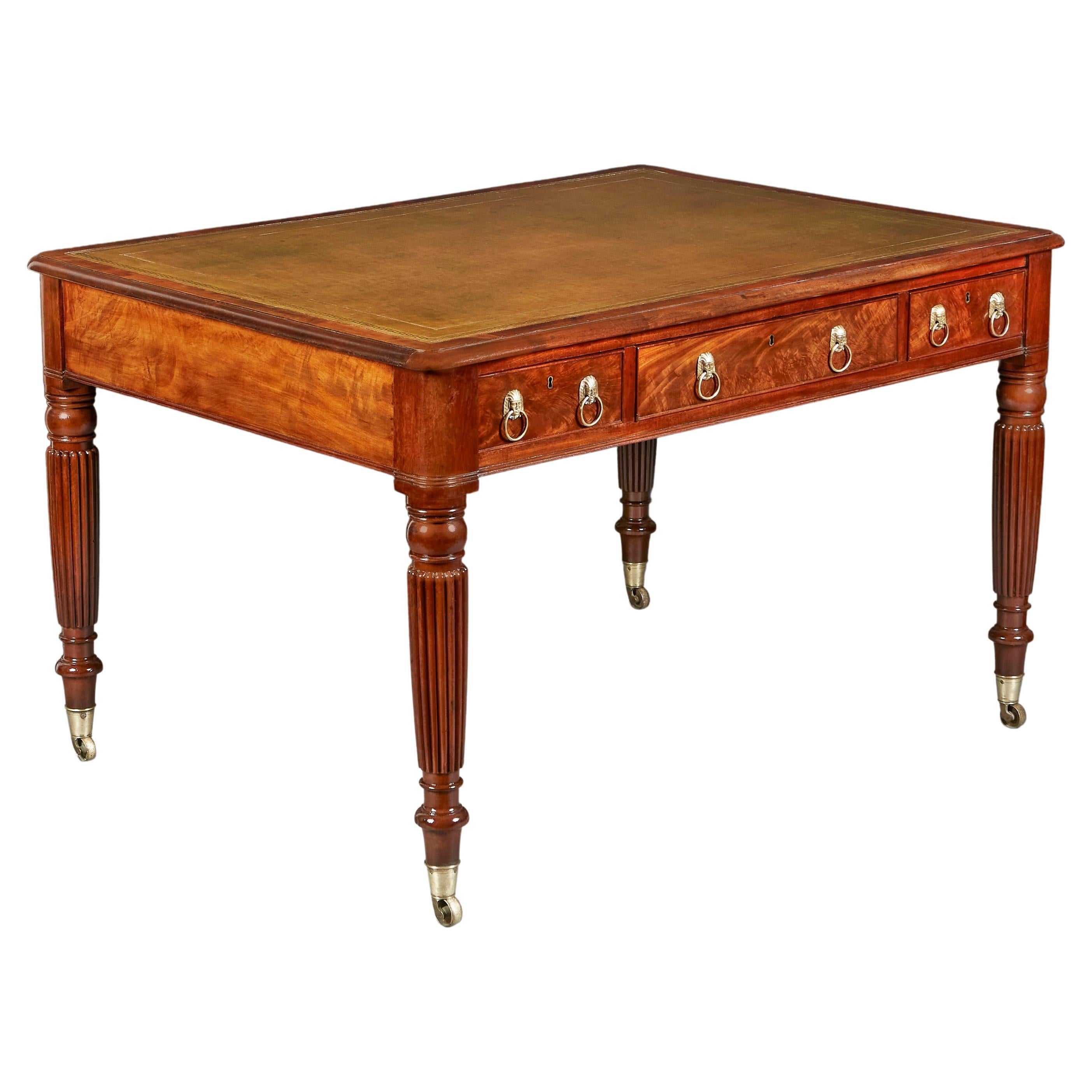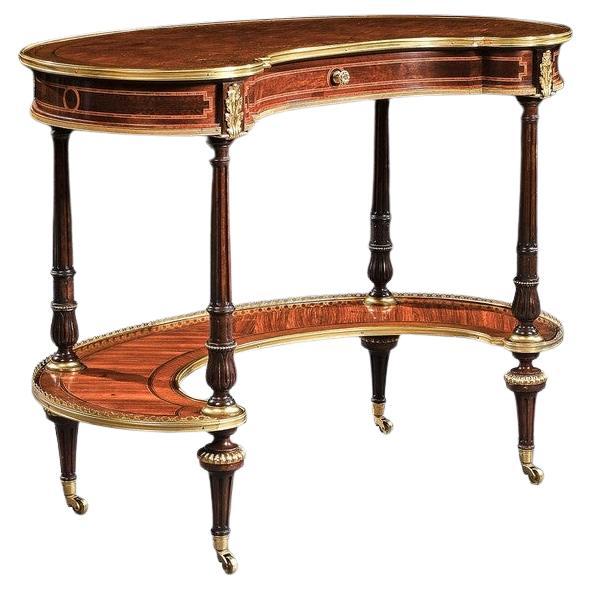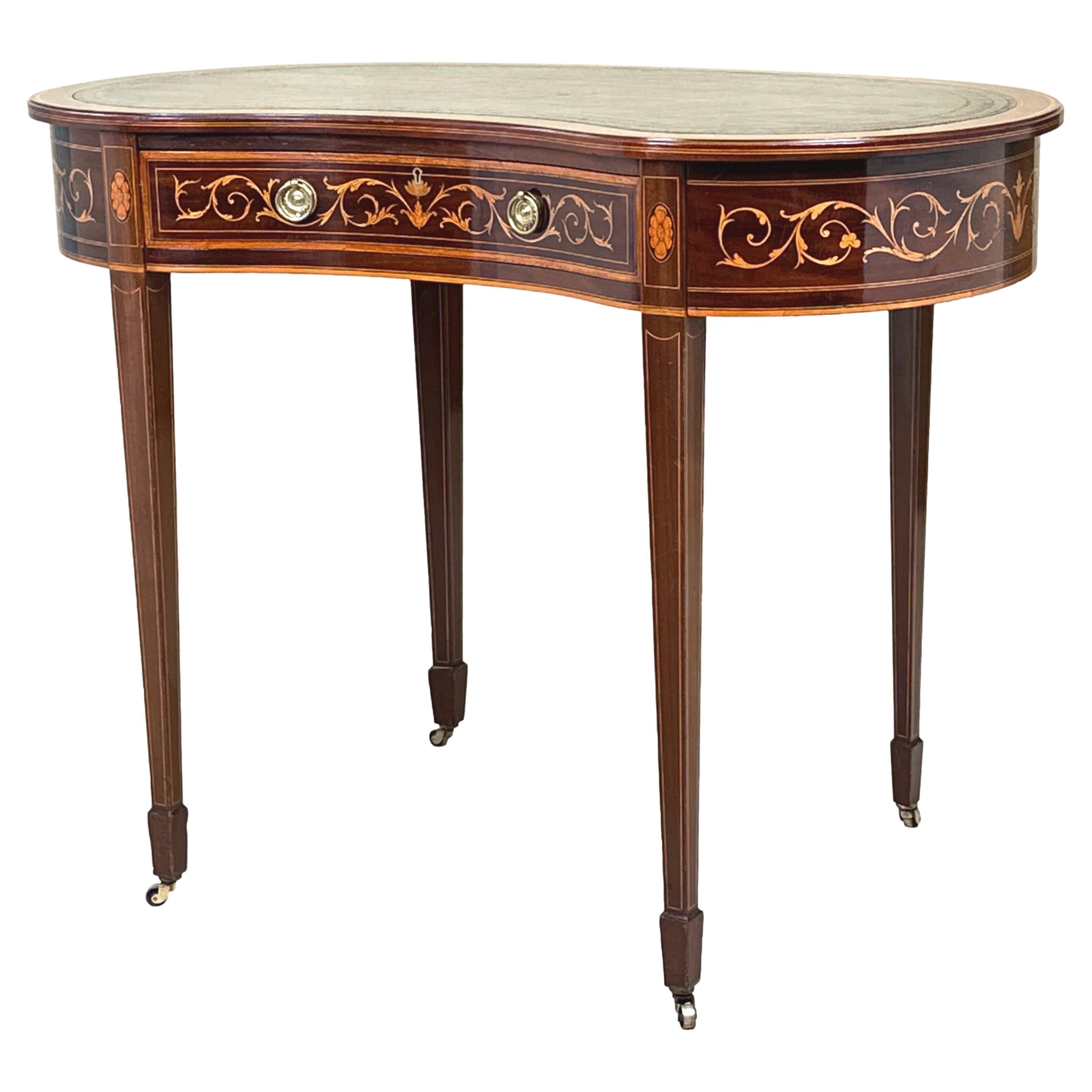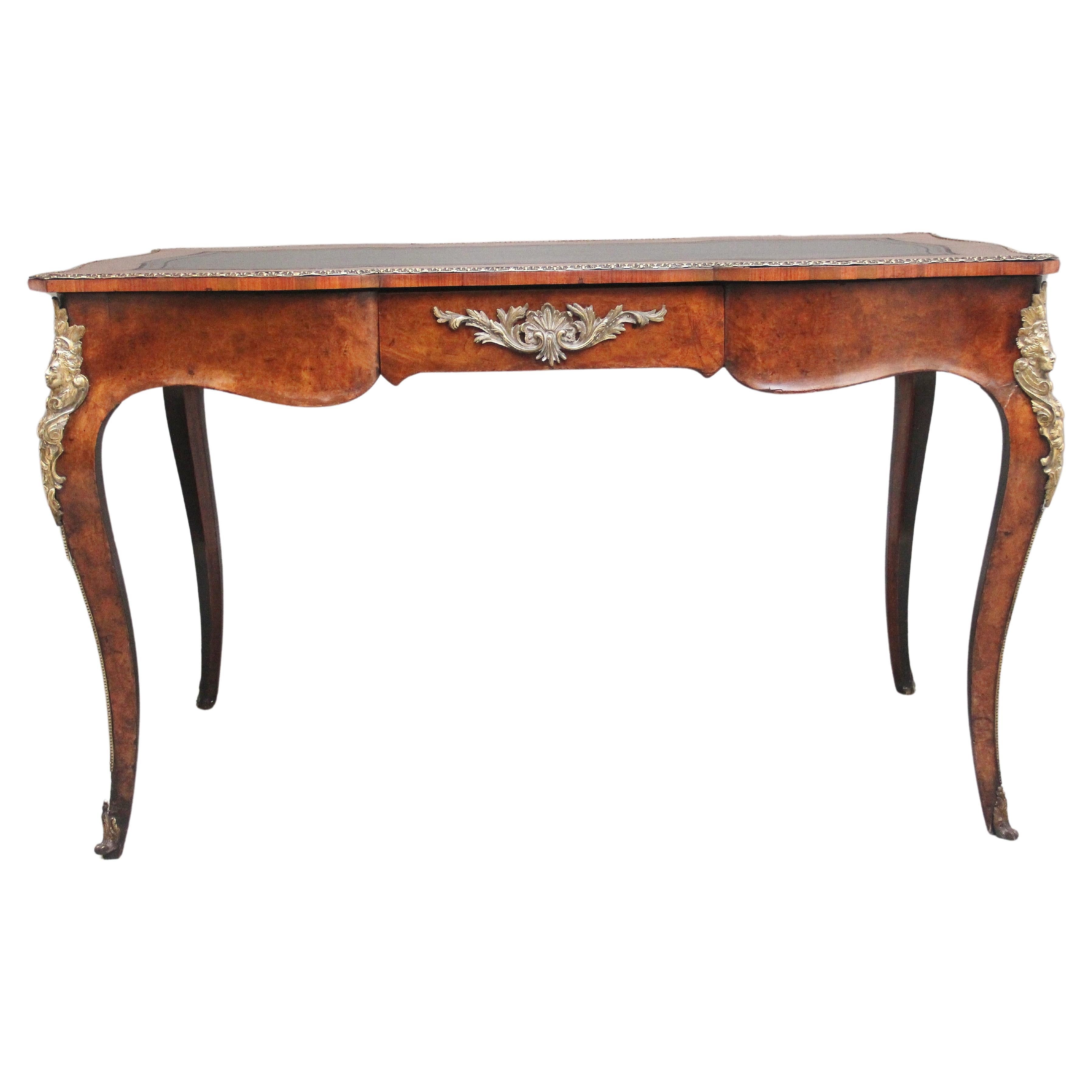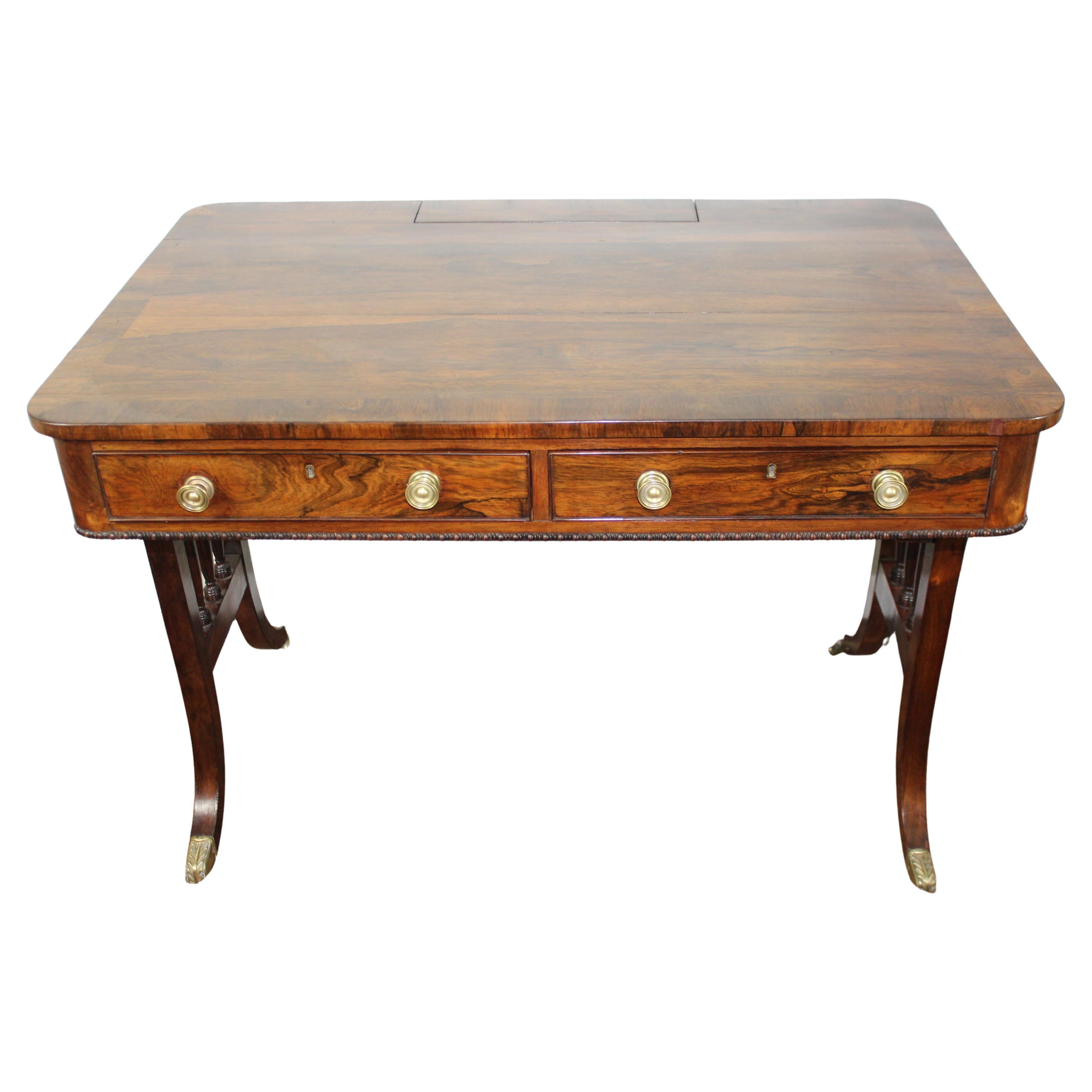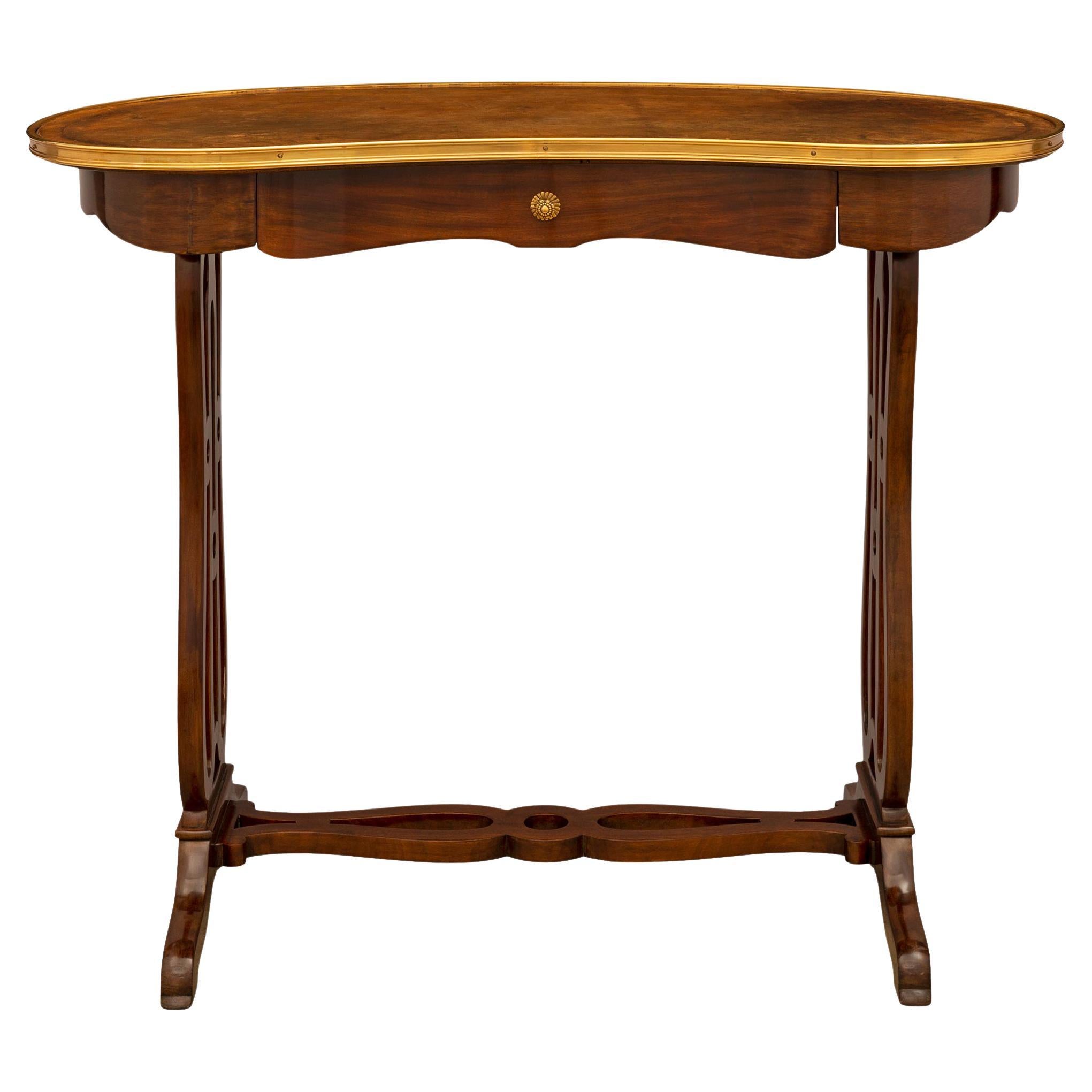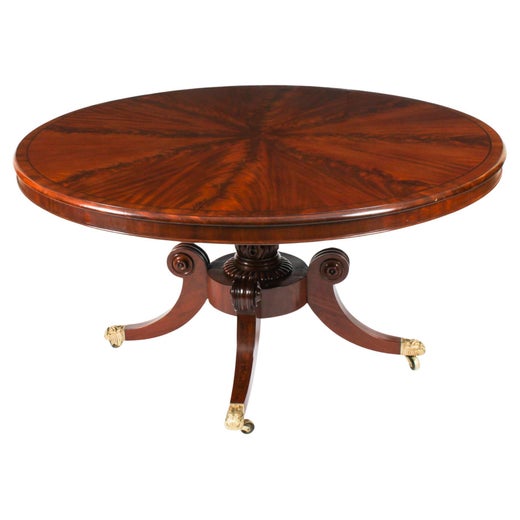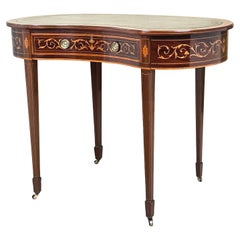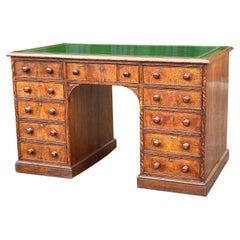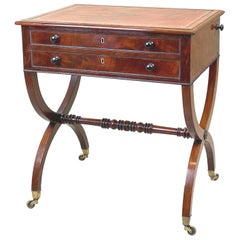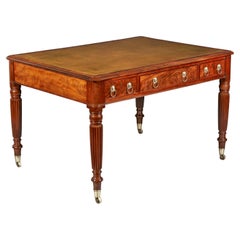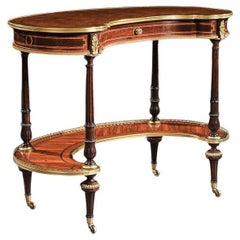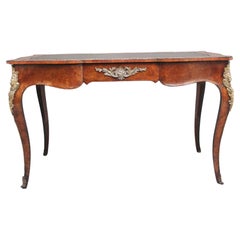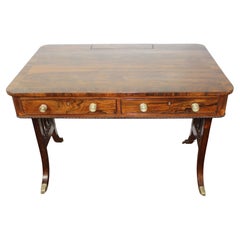Gillow Walnut 19th Century Kidney Writing Table
About the Item
- Creator:Gillows of Lancaster & London (Cabinetmaker)
- Dimensions:Height: 29.5 in (74.93 cm)Width: 38 in (96.52 cm)Depth: 23 in (58.42 cm)
- Style:Victorian (Of the Period)
- Materials and Techniques:
- Place of Origin:
- Period:
- Date of Manufacture:Circa 1875
- Condition:Wear consistent with age and use.
- Seller Location:Bedfordshire, GB
- Reference Number:Seller: 95161stDibs: LU955843148482
Gillows of Lancaster & London
It would be difficult to find an antique furniture enthusiast or collector unfamiliar with the name Gillows of Lancaster and London. The British furniture company — which has earned references in the writings of Jane Austen and elsewhere in literature — is renowned for its exceptional quality craftsmanship, and attracted designers such as Thomas Chippendale, Thomas Sheraton and George Hepplewhite in its heyday.
The firm was founded circa 1730 by Robert Gillow (1704–72), who worked as a joiner, housebuilder and overseas merchant before making furniture for homes and export. Gillow established his business in his home city of Lancaster. However, the company later expanded into London in the 1750s after Robert entered into a partnership with his son, Richard, who apprenticed with a London architect and learned the merchant trade in Barbados. Richard had entrepreneurial aptitude — he managed apprenticeships at the firm, ensured that quality materials were a priority, navigated economic hardships, and designed furniture, too. He created seating based on sketches drawn by his cousin, James Gillow, in London.
London’s wealthy upper class took notice of the Gillows’ high-quality furniture, which came to include bedroom furniture, cabinets, a range of seating and other pieces made of rosewood or rich mahogany imported from the West Indies and Jamaica. By the end of the 18th century, the manufacturer was one of the leading furniture makers in Britain. Gillows designed its own furnishings and worked with significant designers; they had in-house upholsterers and cabinetmakers and employed decorative techniques such as “japanning” in their designs.
Gillows of Lancaster and London became Gillow & Co. in 1813 after selling to Redmayne, Whiteside and Ferguson. The company continued to thrive throughout the Georgian era and into the Victorian period, a time that yielded well-known collaborations with Scottish architect and designer Bruce Talbert on a regular basis. High-brow clients of the manufacturer clamored for their inventive and functional designs for tables and writing desks, many of which incorporated whimsical elements such as secret and pop-up drawers. There was also demand for earlier Gillow designs such as Baroque and Gothic Revival pieces as well as adaptations of Chippendale works.
Despite their success, Gillow & Co. entered into financial hardship during the late 1800s with the advent of mass-produced furniture. By 1903, they merged with Waring of Liverpool to become Waring and Gillows and, in 1980, were taken over by Maple & Co. to become Maple, Waring and Gillow. Today, many Gillows of Lancaster and London pieces are in museums throughout the United Kingdom, New Zealand and Australia.
Find antique Gillows of Lancaster and London furniture on 1stDibs.
- ShippingRetrieving quote...Shipping from: Bedfordshire, United Kingdom
- Return Policy
More From This Seller
View AllAntique Late 19th Century English Late Victorian Desks and Writing Tables
Mahogany
Antique Early 19th Century English Regency Tables
Oak
Antique Mid-19th Century English Victorian Desks
Oak
Antique Early 19th Century English Regency Side Tables
Mahogany
Antique Early 19th Century English Regency Desks and Writing Tables
Mahogany
Antique Mid-19th Century English Victorian Coffee and Cocktail Tables
Walnut
You May Also Like
Antique 19th Century English Desks and Writing Tables
Mahogany
Antique 1860s English Desks
Bronze
Antique 1860s British Victorian Desks and Writing Tables
Walnut
Antique Early 19th Century British Regency Desks and Writing Tables
Brass
Antique 19th Century French Desks and Writing Tables
Ormolu
Antique Late 19th Century British Desks and Writing Tables
Walnut
